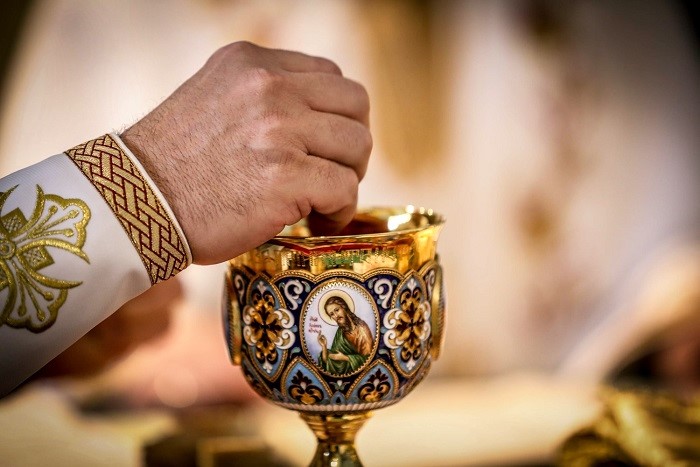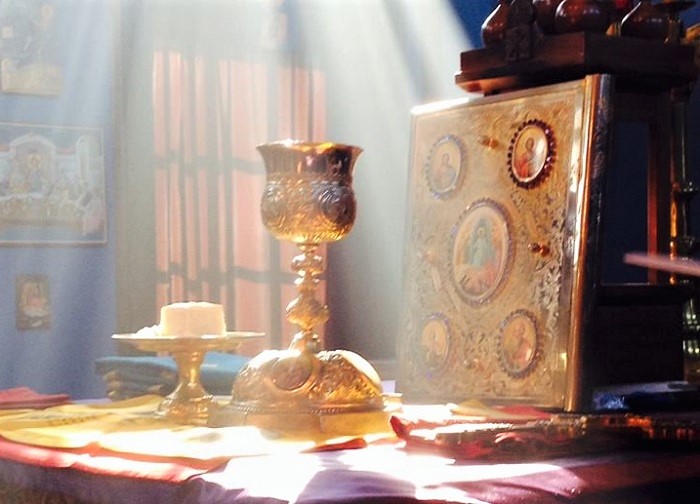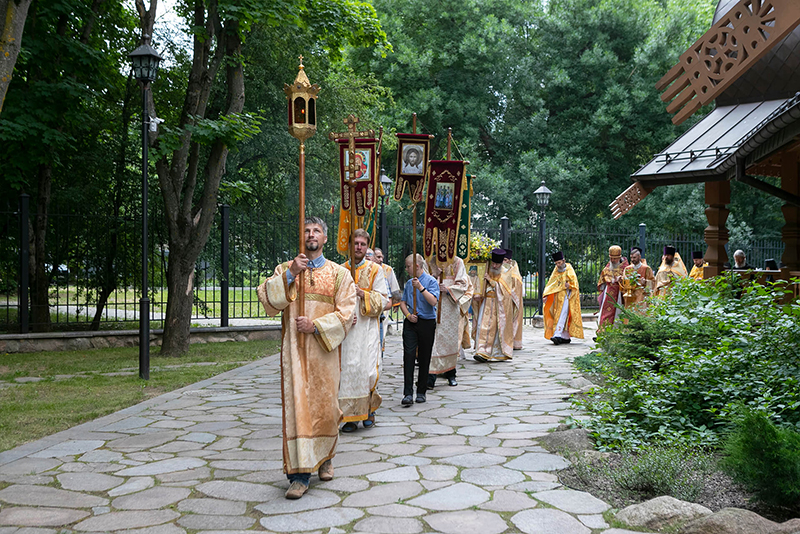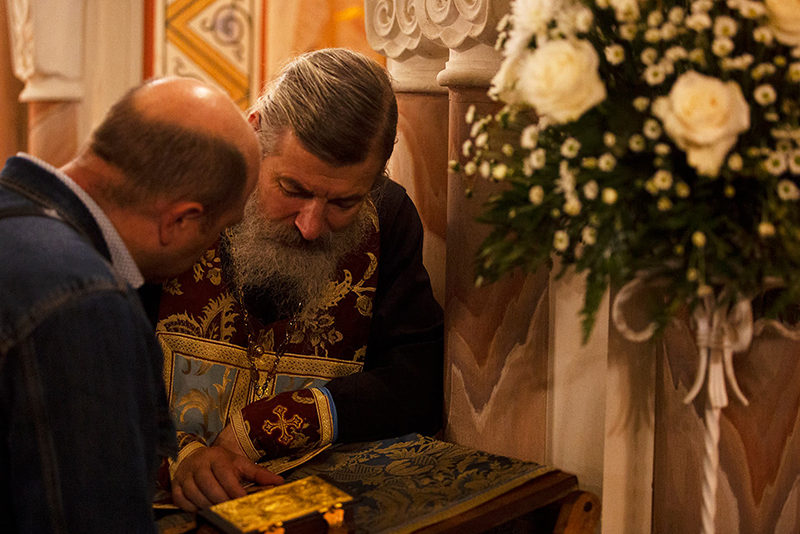
In some old Russian service books, there is an unusual liturgical document – “Uchitelnoe Izvestie”, which literally means “Edifying Letter”. This is a special treatise known since the end of the 17th century, which is based on the compositions of Euthymios, a monk from The Chudov Monastery. The treatise is aimed to instruct the priests how to behave before serving the Divine Liturgy, as well as how to resolve some possible force majeures that can occur during the service. Some interesting details of this text are given below.
What if a priest serving the Liturgy dies or is unable to finish it?
In this case, the service should be stopped. If this happens after the consecration of the Holy Gifts, then another priest, if there is one, must complete the service, starting from the point where the first priest finished. If the first priest has not died and is able to partake of communion, then the second priest is obliged to commune him, using the Communion spoon if necessary. If there is no any priest, then one of the pious and worthy men should cover the Holy Gifts with a chalice cover so that nothing drops into the Chalice or on the Discos. Then one should wait for the arrival of another priest. Another priest must perform the full Liturgy, starting with the Offertory, and consume the consecrated Gifts from the unfinished Liturgy at the end of the service. Fulfillment of the full Liturgy from the very beginning is necessary because another priest was not present at the first service and he cannot start from the interrupted moment.
What should a priest do at the Liturgy, if a person, who wants to be baptized or to confess his sins, is dying nearby?
In this case, the priest must hurry to the dying person, ceasing his service, but only if the Great Entrance was not performed yet. If the Holy Gifts have already been transferred to the Holy Supper, then the priest must serve the Liturgy till the end, relying on God’s Providence, that after the Liturgy he will get to the dying person in time. While a priest is absent, the faithful must be edified by reading the Apostle, the Psalter, or the canons by themselves. If the priest does not manage to return and serve the service till the end on this day, then the next day the Holy Eucharist should be performed from the very beginning. Bread and wine left from the first Liturgy should be consumed as blessed bread and wine after the partaking of the Chalice.

What if something drops into the Chalice?
If a fly drops into the Chalice before the Sanctification of the Gifts, then it should be taken out and burnt. If something poisonous drops into, then the wine needs to be poured into another vessel, and a new wine and some water should be poured into the Chalice, along with the words “One of the soldiers with a spear pierced his side, and forthwith came there out blood and water…” as at Offertory. Then the Liturgy should be performed as usual. Spoilt wine should be poured into a river or in any place that is impossible to defile. If something drops into the Chalice when the Blood of Christ is already there and if the priest cannot swallow it, then it should be carefully removed and washed well with wine over another vessel, and then wrapped in a clean cloth. After the Liturgy, the object must be burned, and the ashes, along with the wine, should be poured in any place that is impossible to defile.
What if a priest sees flesh and blood or an infant instead of bread and wine? (This point speaks about more or less lasting miraculous visions that happen to a serving priest. Based on the fact that this case is included in the Izvestie, we can conclude that such cases occurred repeatedly in the past.)
In this case, the priest must stop the service and pray to God for forgiveness, for this miracle is given because of his lack of faith in the Sacrament. If the miracle disappears and the Gifts turn back into their normal appearance, then it is necessary to partake of these Gifts as usual. If the miracle does not disappear and flesh and blood are still visible, then the priest cannot partake of these. He must take a new prosphora and a new wine, putting aside and pouring into another vessel the miraculously transformed Gifts. A priest should do everything according to the rite of Offertory over a new prosphora and wine and consecrate the Gifts, beginning with the prayer “With these blessed powers, O loving Master, we also…”. When the miracle with the previous gifts ceases, they need to be consumed.
We have not given all the cases that can happen during the Liturgy or all described in this letter. However, based on what we have read, it can be concluded that this text suffused with a sense of lively awe before the great Sacrament of the Eucharist and contains instructions of great worth that can instruct priests nowadays.




Hello! Several times in this article you repeat the phrase, ” in any place that is impossible to defy.” Do you mean to use the word “defile,” The word “defy” doesn’t make sense in the context, as far as I can tell.
Remember me in your prayers, please.
Unworthy priest,
Fr. Gregory Hogg
Good day, Fr. Gregory!
You are right, there was a mistake in the text. We have fixed it already. Thank you for your comment! We are very glad to see that our readers are ready to help us in developing our content.
Of course, we will pray for you. May the Lord help you!
This looks like it was taken, and then modified to match the Divine Liturgy, from the Tridentine Latin rubrics section entitled De Defectibus.
Dear Fr. James, thank you for your comment and you are right. The base for this liturgical instruction was the so called “Voumlenie” ( “The Admonition”) of the monk Euthymius who lived in the second half of the XVII c. One of the sources of the Admonition was the tractate on “The mystery of Body and Blood of Christ” of famous orthodox Ukranian mitropolite Peter Mogila who studied in the Jesuits college and heard about the Tridentine rubrics De Defectibus. For many centuries Russian Church was under Roman Catholic influences in theology due to the fact that there were no any High Education Istitution in Russia and Greeks were under the Turks.